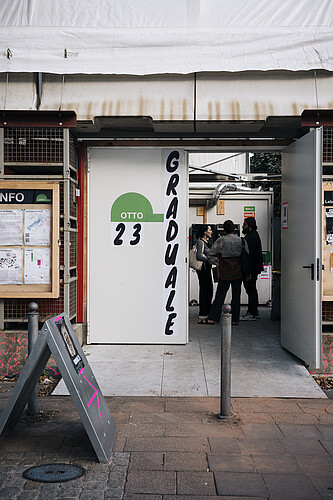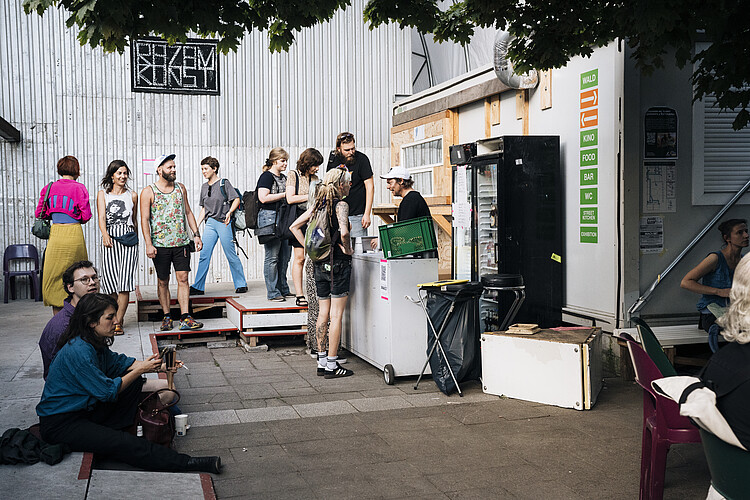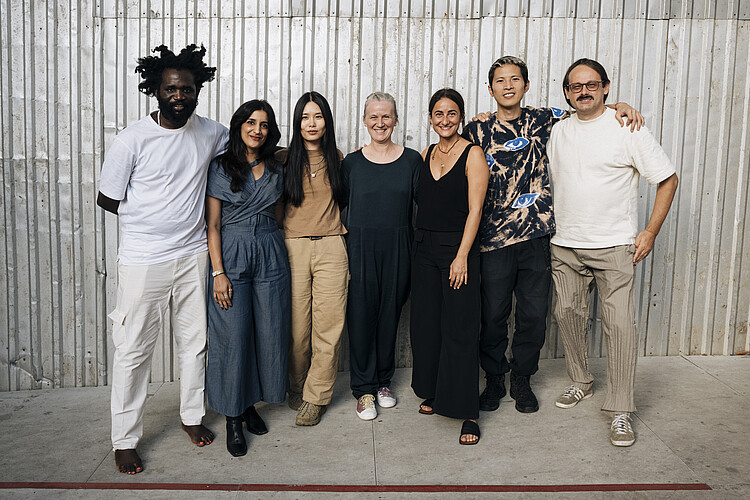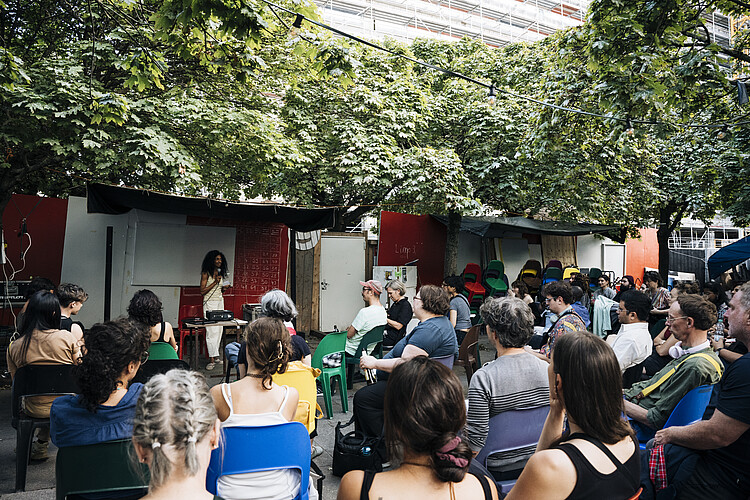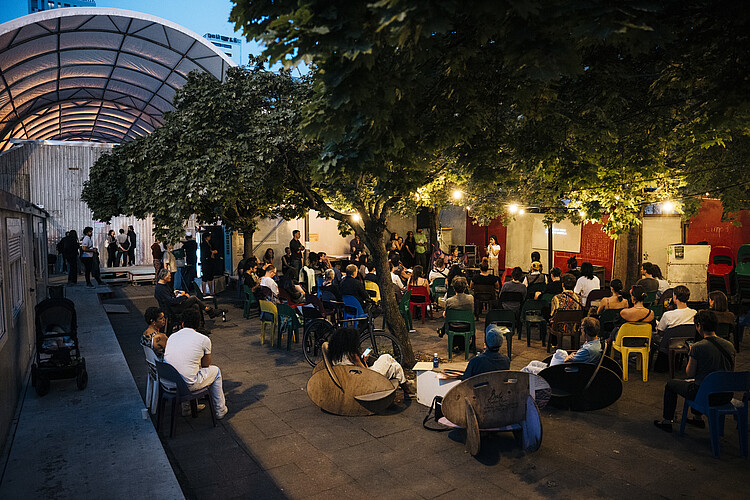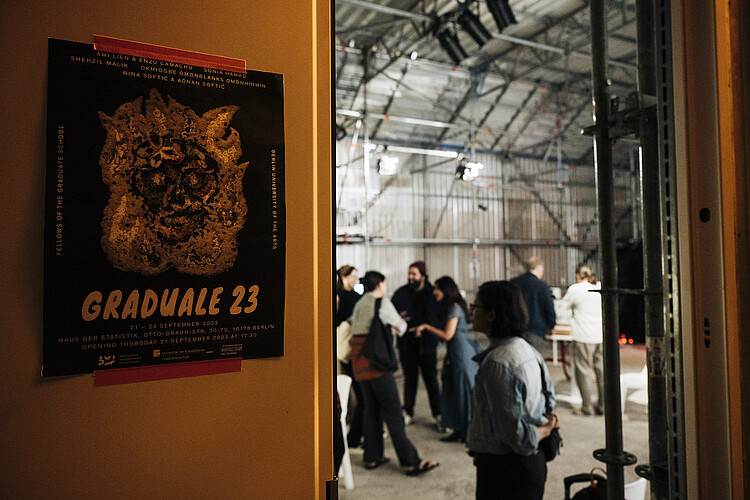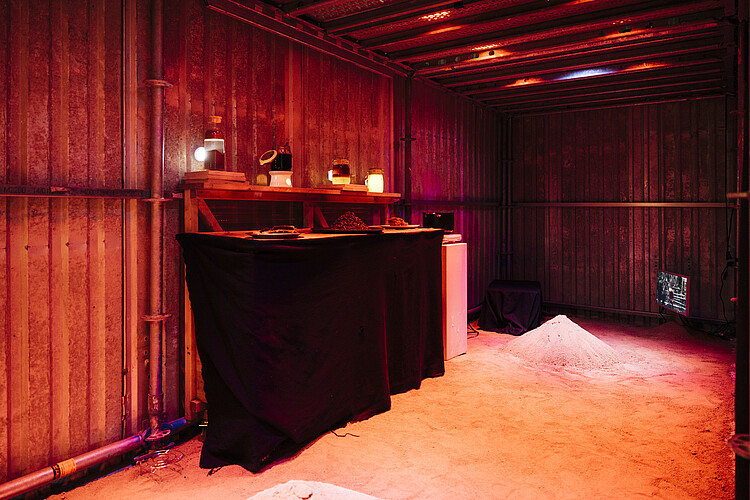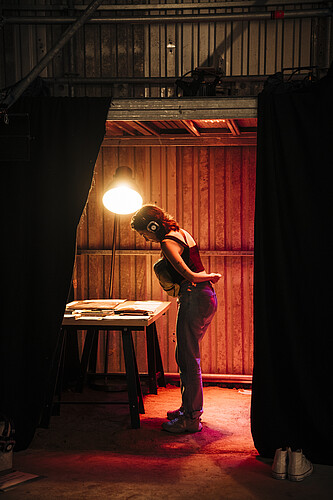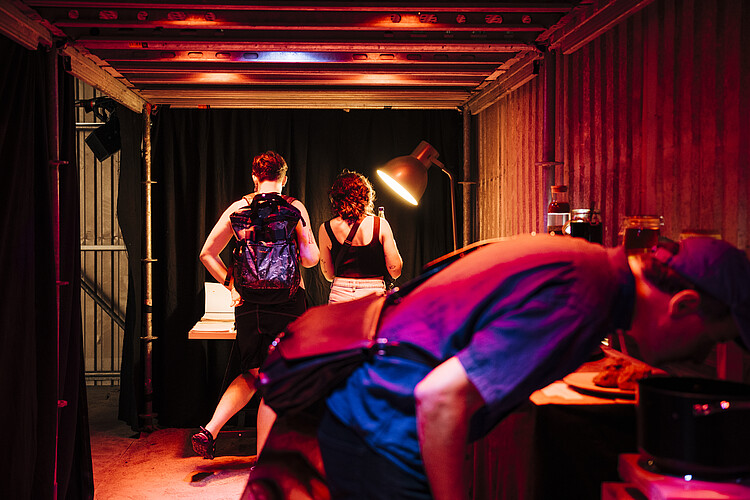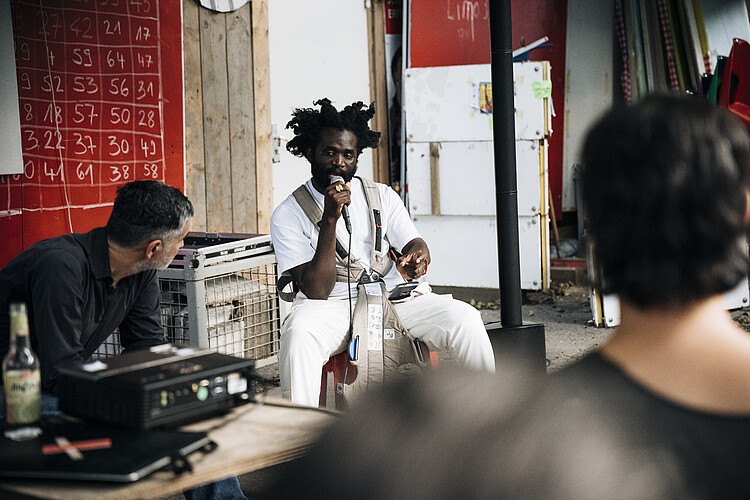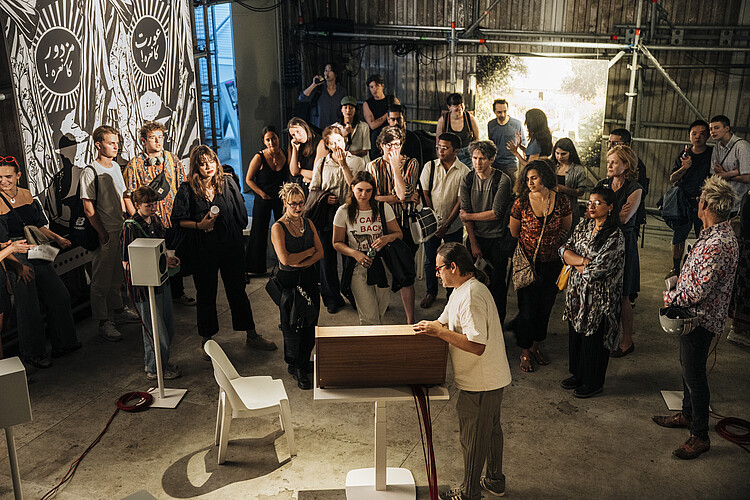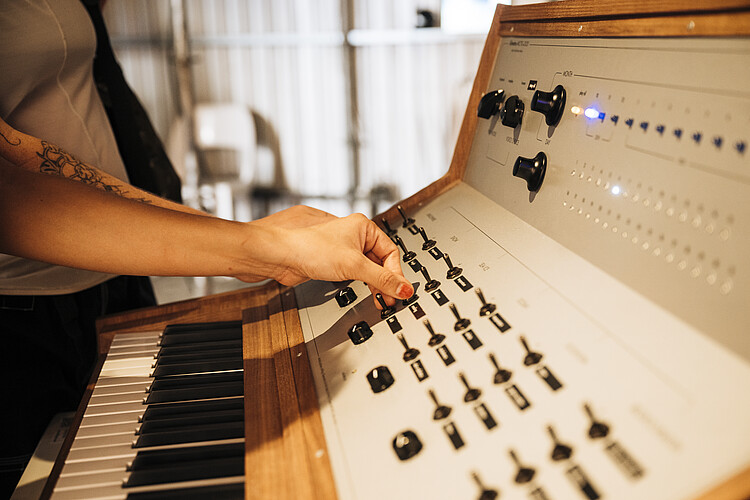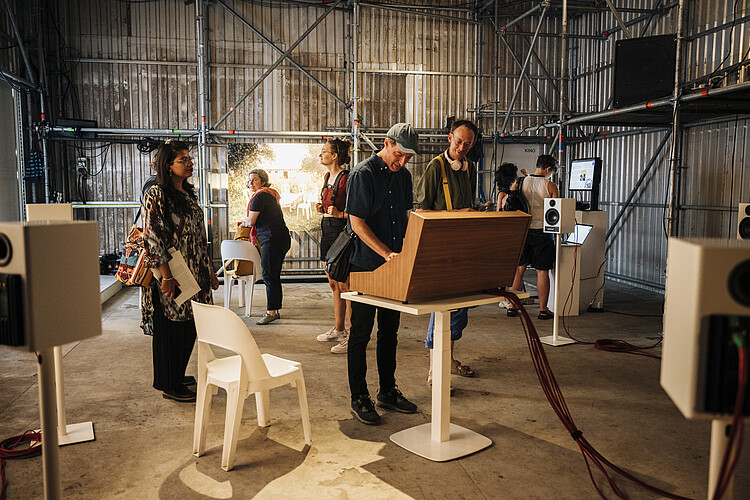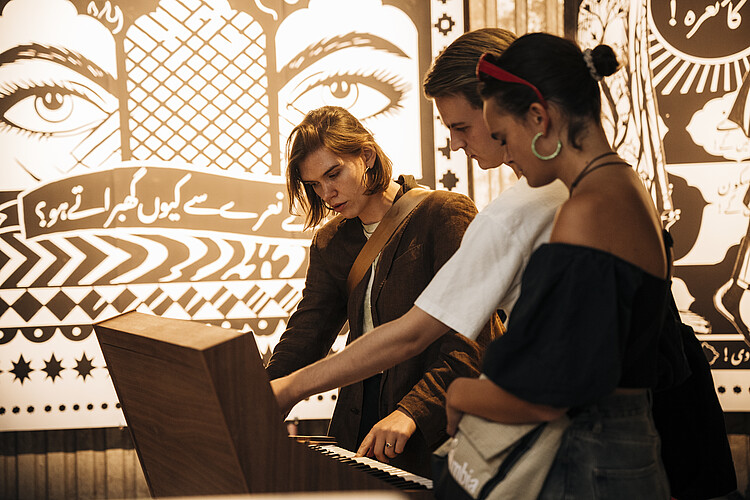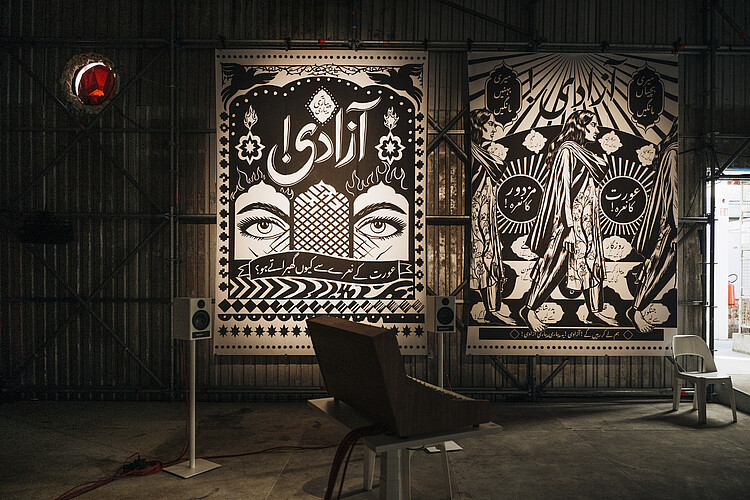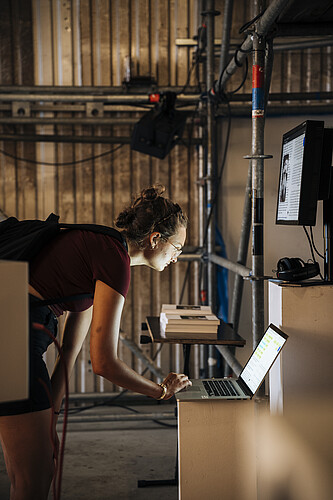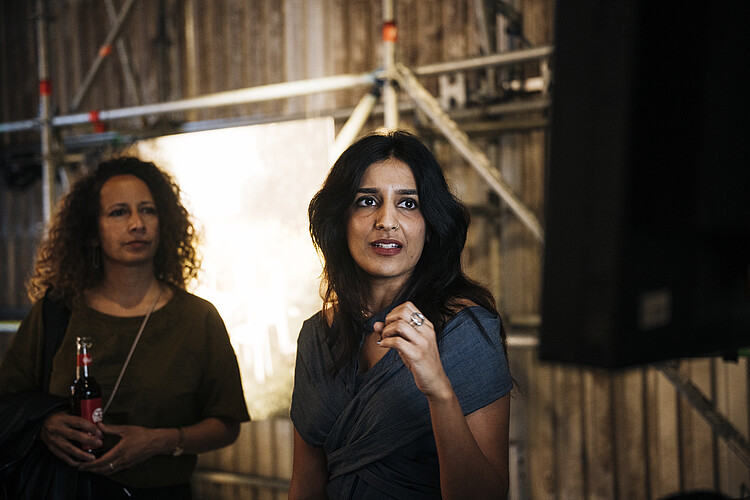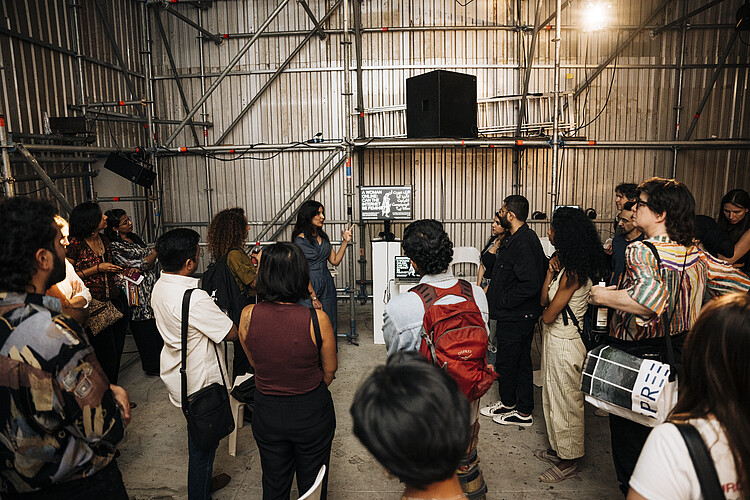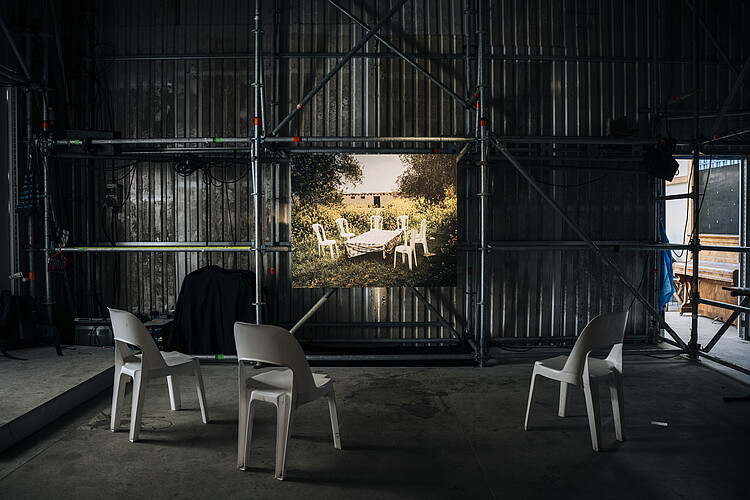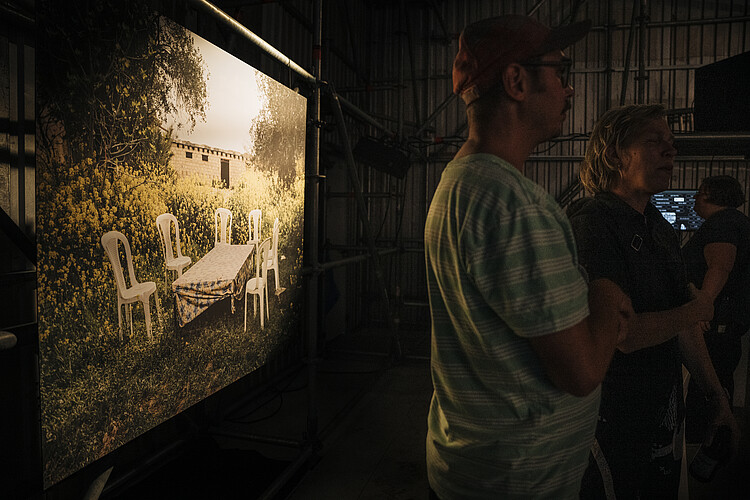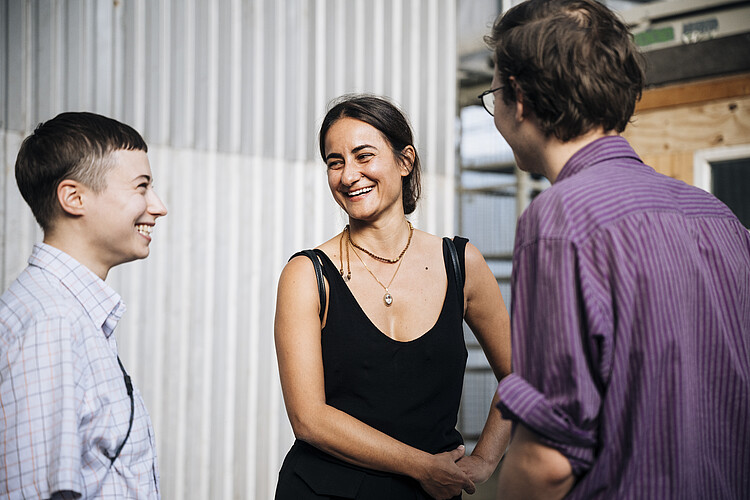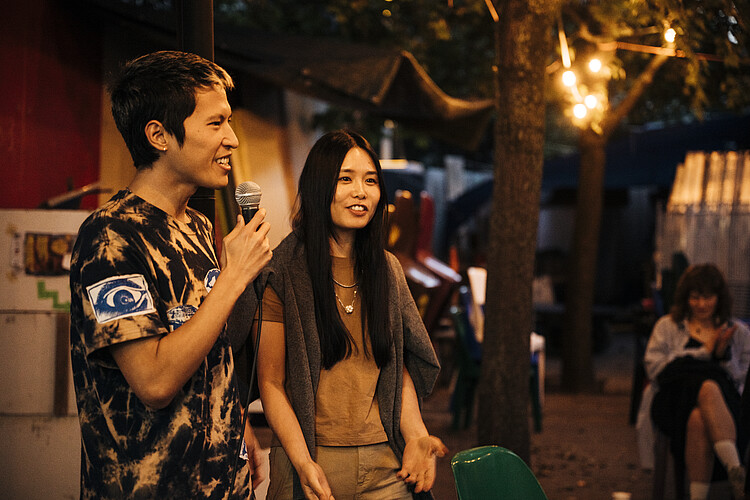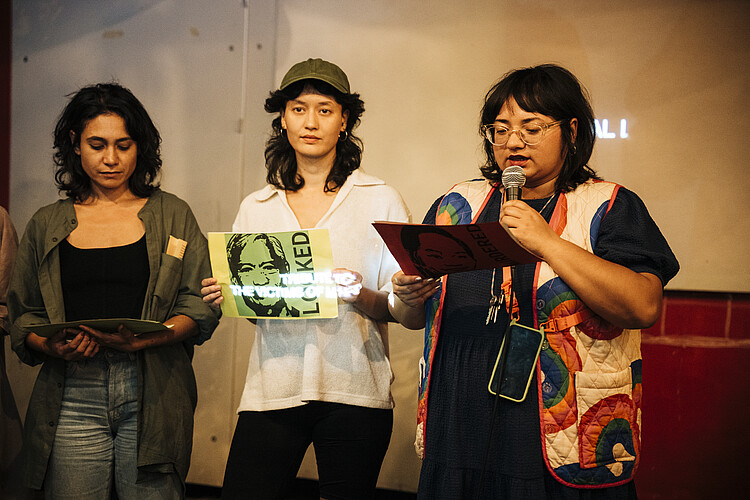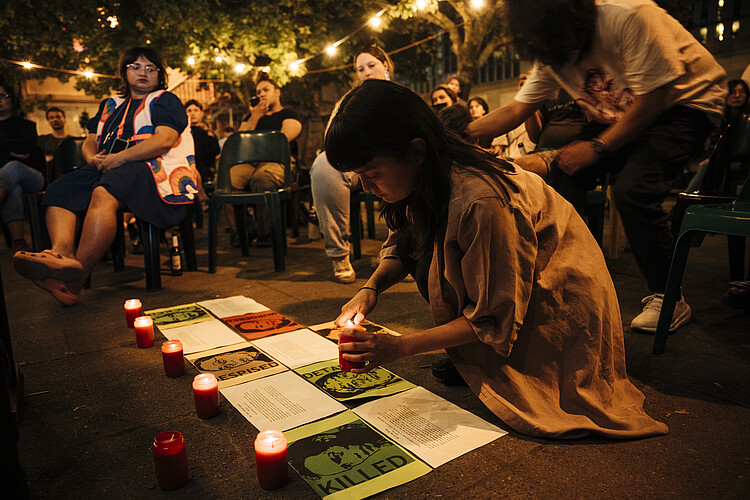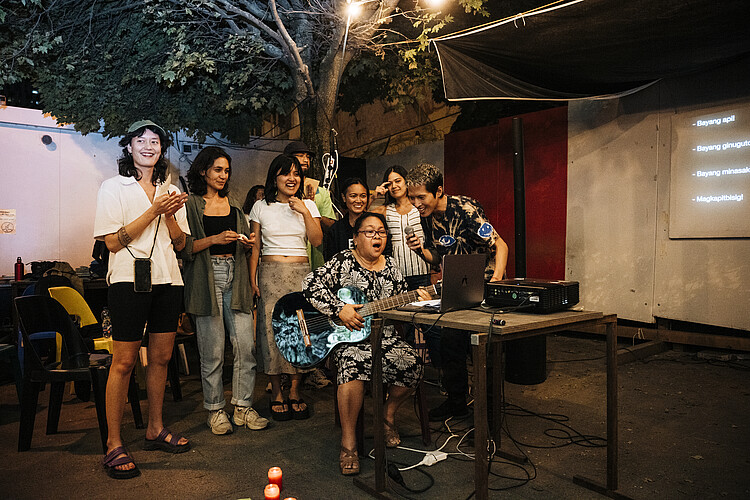Graduale 23 (Kopie 1)
Every two years, the postgraduate program of the Berlin University of the Arts marks the end of a fellowship cycle with an exhibition.
This show assembled five distinct artistic positions, five ways to commemorate a two-year process.
Okhiogbe Omonblanks Omonhinmin
in(to) grief (2023)
red clay-sand, cooking station, glass jars, prints, tables, headphones, media player
In the words of the artist, this piece offers an “exploration of death, life, and the grieving process. It intimately reflects on a personal journey by tracing my matrilineal DNA lineage, connecting my grandmother, Theresa Otibho Okhiogbe Oboh, my mother, Victoria Elomese Omonhinmin, and myself. Moving beyond societal norms that often stigmatize death, this project invites us to embrace death as a natural occurrence, deserving of love and acceptance. It challenges our forced socialization by presenting death as an inherent part of life‘s cycle.”
On the opening night, Omonblanks looked back on the UdK Fellowship in conversation with Guest Professor Tirdad Zolghadr.
Adnan Softić & Nina Softić
KLIMATON ARCTIC≈2020 (2023)
generative sound object with 8 loudspeakers
In collaboration with scientists, technicians, and composer Thies Mynther, Adnan & Nina Softić developed a hybrid between a sonification device and a musical instrument that emits data from the Arctic as sound. The resulting Sonified Portrait of a Disappearing Landscape allows for an unusual approach to data assembled by the 2020 Arctic expedition MOSAiC - the largest example of data collection within a single region, and perhaps the last inventory of a disappearing witness to climate change. As the duo points out, “data archives are hardly a solution as long as their contents are not given a socially accepted meaning” - by means of contemporary art or otherwise.
Shehzil Malik
Woman Online: Can the Internet be Feminist? (2021– ongoing)
monitor with headphones, 2.4 m x 3.35m prints, cutouts
Shehzil Malik’s contribution is the latest iteration of her long-term inquiry into how women and gender minorities navigate patriarchal structures in digital spaces. Malik focuses on Pakistan, where the Internet represents a complex ideological ecosystem that acts as both a site of oppression and a decentralized means to resistance. Malik has long engaged with key feminist stakeholders to understand how oppression is experienced, resisted and remembered. Here, the audience is invited to engage with written testimony, photos, music, poems, artifacts and cues from the visual language of Pakistani street posters, both within the exhibition and on the street outside.
Sonia Hamad
Kurdish Spring, Romelan, Rojava - Northern Syria (2015)
archival pigment print on Hahnemühle Photo Rag and Alu-Dibond, 120 x 150 cm
Sonia Hamad’s contribution is eerily topical. The stackable Monobloc chairs in her photograph are of a familiar, not to say universal design, and seven in number, grouped in quiet expectation of seven absent individuals who are about to convene - or who convened only recently. The scene is nestled within a lush and leafy panorama, but set against a backdrop that is still under construction. It’s too casual for a seminar, too stiff for a picnic. The suggestive state of suspension is further underlined, and gently rendered tangible, by a number of Monobloc chairs distributed throughout the exhibition premises.
Enzo Camacho & Ami Lien
The fellowship research of Enzo Camacho & Ami Lien has focused on the plantation island of Negros (Phillipines); in particular on one of the darkest moments of the Marcos regime - the 1985 Escalante Massacre. Given that our vernissage, 21st September 2023, coincides with the anniversary of Marcos‘ 1972 declaration of martial law, Camacho & Lien have invited Berlin- based collectives ALPAS Pilipinas and Gabriela Germany to stage a commemorative event. This in the name of collective historical memory, but also to address continuities between a historical period and the current moment: plantation violence in Negros has further intensified as Marcos‘ son Bongbong regained the Philippine presidency.
